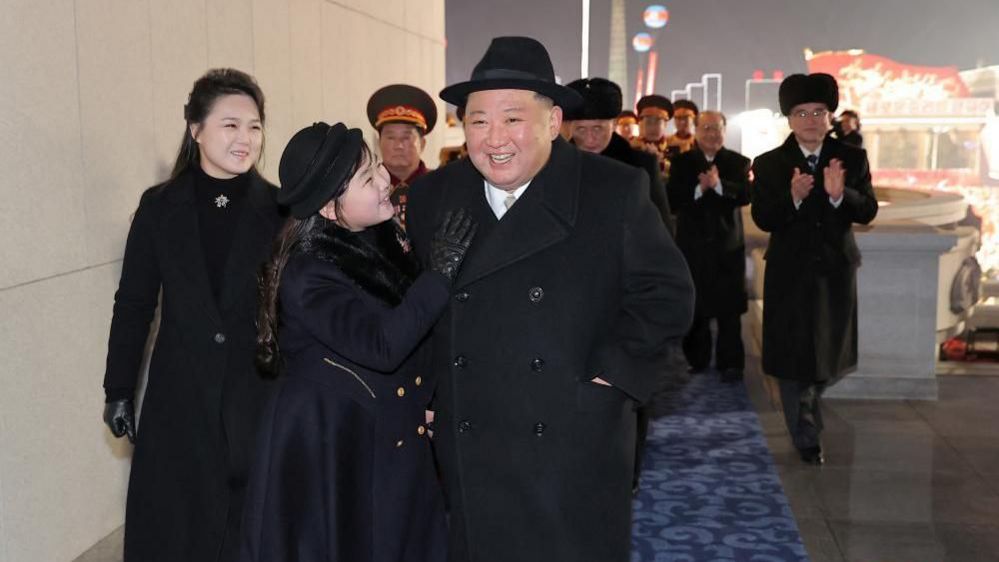South Korea bans viral hit ‘idolizing’ Kim Jong Un
South Korea has announced its intention to prohibit a popular North Korean propaganda melody that praises Pyongyang’s leader, Kim Jong Un, as a “friendly father” and a “remarkable leader.”
Seoul’s media regulatory body cited the National Security Act in its decision, asserting that the music video, which gained popularity on TikTok after its release in April, violates national security regulations.
The Korea Communications Standards Commission of Seoul stated on Monday that the song “glorifies and idolizes Kim Jong Un,” thus breaching the National Security Act, which restricts access to North Korean government websites and media and prohibits actions or speeches supportive of the regime.
According to the commission, twenty-nine versions of the “Friendly Father” music video will be restricted, although the method of restriction was not specified. The decision was made following a request from South Korea’s National Intelligence Service.
“The video represents typical content associated with psychological warfare against South Korea, as it was disseminated through a channel aimed at international audiences and primarily focuses on unilaterally praising and glorifying Kim,” the regulatory body explained.
The impending prohibition has sparked curiosity among South Koreans, many of whom have viewed the music video since the announcement.
Some individuals have suggested leaving the video accessible “to allow more people to appreciate the humor,” as seen in comments left on the video.
Friendly Father is the latest in a line of pop songs Pyongyang’s propaganda machine has churned out in the past 50 years.
The bright-tempo, catchy hit describes Mr Kim as “father” and “the Great” – terms previously reserved for North Korea’s first leader, his grandfather Kim Il Sung.
“Let’s sing Kim Jong Un, the great leader/ Let’s brag about Kim Jong Un, our friendly father,” it goes.
Some TikTok users say the tune accompanies them at the gym or while doing homework, while others like its nostalgic style, saying it reminds them of older Spanish and French pop music.
The two Koreas have been divided since an armistice ended the Korean War in 1953.
They did not sign a peace treaty and therefore are technically still at war.
Violations of Seoul’s National Security Act can lead to up to seven years in jail, although enforcement of the law has eased recently. There have also been calls to review the law on free speech grounds.


